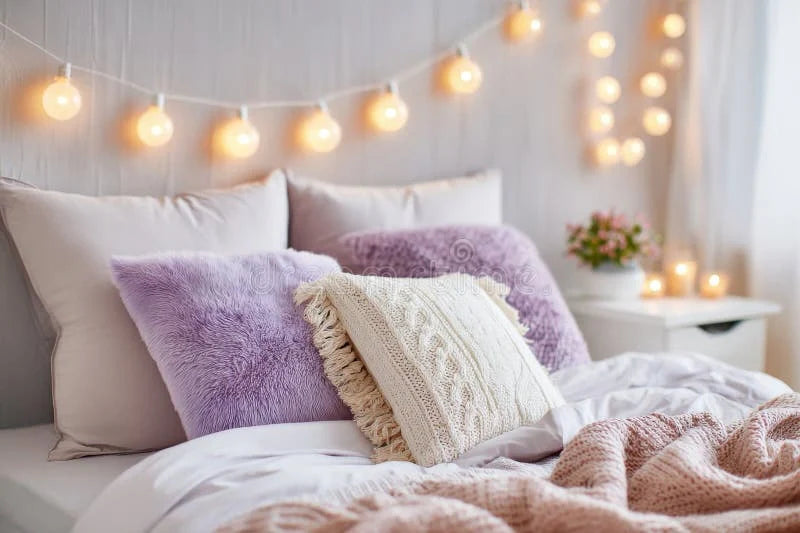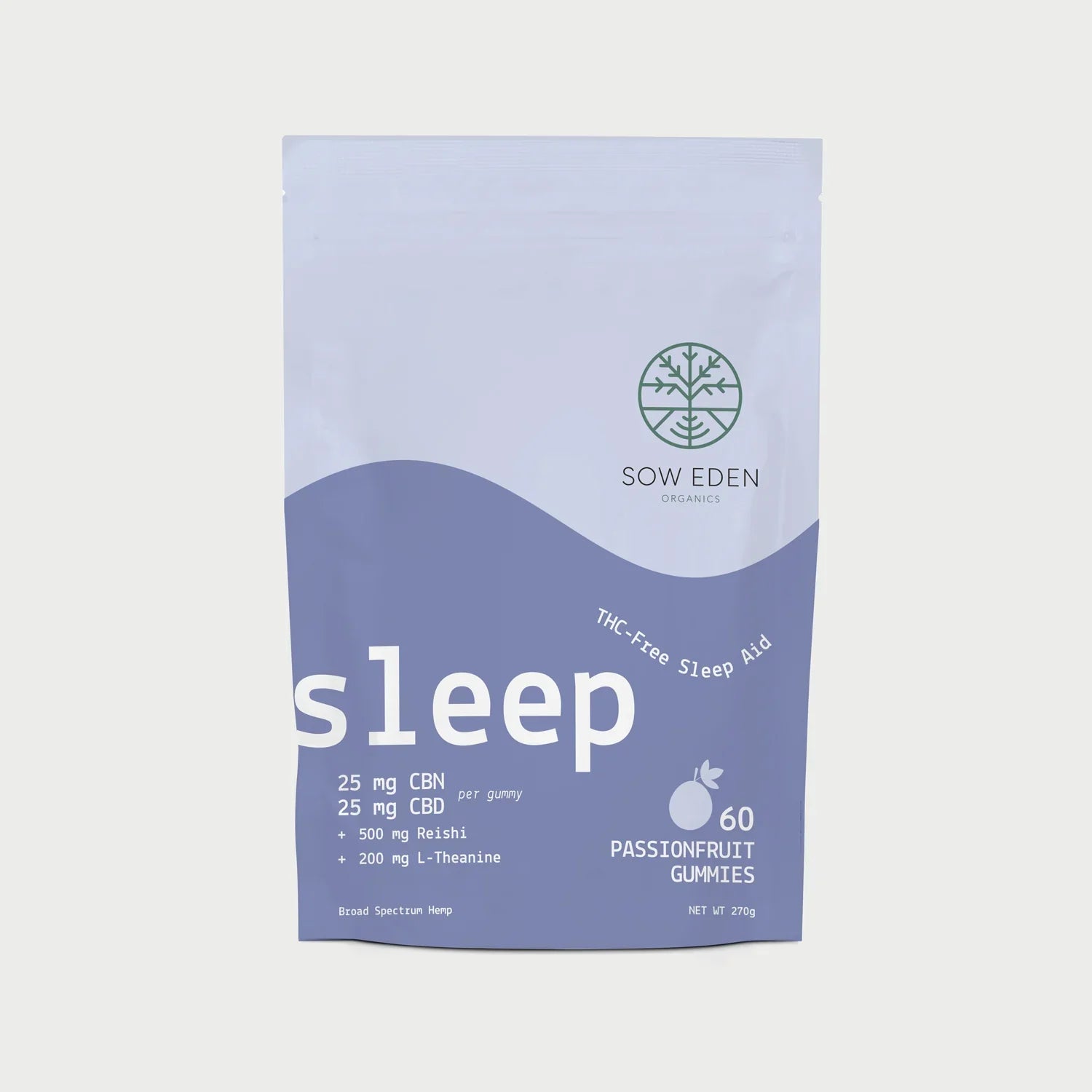Getting better sleep might be more significant than you think. Your body needs at least seven hours of quality sleep each night to stay healthy. Many people find it hard to get enough rest. Poor sleep increases your risk of heart disease, obesity, and depression.
Your sleep quality depends heavily on your environment and routine. A regular bedtime schedule helps streamline your sleep patterns. Research shows irregular sleep can reduce sleep quality by up to 7%. People try many ways to fall asleep faster. Some use relaxation techniques or natural supplements like melatonin. Others look into CBD gummies after learning about their benefits.
In this piece, you'll find practical, science-backed ways to reshape your nights and wake up refreshed. These approaches will help your body get the rest it needs. The right bedtime routine and sleep environment can make all the difference.
Why Counting Sheep Doesn’t Work
People have passed down the advice about counting sheep to help with sleep for generations. Research now shows this method might actually keep you awake instead of helping you drift off.
The myth of mental distraction
The logic behind counting sheep seems sound - a boring, repetitive task should quiet your mind. This method fails because your brain doesn't engage enough with it. Research from Oxford University shows people took 20 minutes longer to fall asleep when counting sheep compared to other mental techniques. The task becomes problematic because it's too boring to hold attention but needs enough focus to keep your mind active.
Counting sheep also lacks the depth needed to pull your brain away from stress or distractions around you. Your thoughts easily drift back to your worries between counting sheep 37 and 38.
Why it can increase anxiety
This method often backfires and creates pressure. You might feel frustrated when sleep doesn't come after counting higher numbers. Your sympathetic nervous system kicks in from this frustration. This puts you into a mild "fight or flight" response - exactly what you don't need for sleep.
People often report feeling more alert as they keep counting. They start checking if they're getting sleepy yet. This creates a cycle where worry about not sleeping actually prevents it.
What sleep experts recommend instead
Sleep experts suggest these proven alternatives that work better than counting sheep:
-
Visualization techniques: Picture yourself in a peaceful place with rich sensory details. Research shows this works better than counting sheep because it engages your mind while helping you relax.
-
Progressive muscle relaxation: Release physical tension by tensing and relaxing different muscle groups throughout your body.
-
Controlled breathing: Simple breathing patterns like the 4-7-8 technique help your body switch from alert to rest mode. Inhale for 4 seconds, hold for 7, then exhale for 8 to activate your parasympathetic nervous system.
Try relaxation techniques that actually distract your brain or prepare your body for sleep instead of counting mindlessly. If you struggle with ongoing sleep issues, gentle sleep aids might help create better patterns. Make sure to research options like CBD gummies for sleep before trying them.
Build a Sleep-Friendly Routine
A consistent sleep routine is one of the most powerful ways to improve your sleep quality. The human body responds amazingly to predictable patterns that help regulate your internal clock and natural sleep-wake cycles.
Go to bed and wake up at the same time
Regular sleep patterns are the life-blood of good sleep. Research shows that people who sleep irregularly face higher blood sugar, increased blood pressure, and greater risk of heart disease within 10 years compared to those with regular sleep schedules. Your heart and metabolic health depend more on sleep regularity than duration.
Your usual wake time should stay consistent even on weekends. The urge to sleep in might be strong, but experts have found that steady schedules help your body naturally know when to sleep. A study participant put it perfectly: "It feels like my body knows when it's time to go to bed and when it's time to wake up". Your body's sleep signals grow stronger with time, and you'll spend less time tossing and turning.
Avoid screens an hour before bed
Electronic devices emit blue light that directly suppresses melatonin production—your body's sleep hormone. Screen exposure just two hours before bedtime can disrupt this significant melatonin surge.
Set an alarm to remind you to turn off all electronic devices at least an hour before bed. Your phone should charge in another room overnight to prevent light disruption and notification checks.
Use a wind-down ritual
A wind-down routine bridges your active day and restorative sleep. This pre-sleep sequence tells your brain it's time to relax. Some effective wind-down activities include:
- Taking a warm bath or shower
- Reading a physical book (not an e-reader)
- Practicing gentle stretching or meditation
- Journaling about your day
- Listening to calming music
Start your wind-down routine 30-60 minutes before your target bedtime. Consistency makes the difference—your brain builds connections between these steps and sleep when you follow the same order each night. Your body will naturally prepare for rest before you get into bed with regular practice.
Create the Right Sleep Environment
The way you set up your bedroom significantly impacts how fast you fall asleep and your sleep quality. A well-designed bedroom can transform your sleep experience.
Keep your room cool and dark
Sleep experts recommend keeping your bedroom temperature between 65-68°F (18.3-20°C). Your body needs this cooler environment to naturally lower its core temperature and help you sleep better. A bedroom that's too warm can throw off your body's temperature regulation and leave you feeling tired.
Darkness triggers your pineal gland to produce melatonin, which helps you feel sleepy. Light exposure during sleep can disrupt your circadian rhythm and make your heart beat faster at night. You can create the right darkness level by:
- Installing blackout curtains to stop outside light
- Wearing a sleep mask if you can't block all light
- Moving electronic devices out or dimming their screens
Use white noise or earplugs if needed
Random sounds can wake you up easily. White noise creates a sound barrier that blocks environmental noise and helps you fall asleep 38% faster. Research shows people who live in noisy areas drift off to sleep more quickly with white noise.
Earplugs work well if noise is a constant problem. Look for ones rated between 20-30 NRR for the best sleep protection.
Choose the right mattress and bedding
Your mattress should support your spine's natural alignment through the night. Take time to test each mattress by lying in different positions for at least 10 minutes.
Cotton, linen, and bamboo make excellent bedding choices. These materials help control temperature and handle moisture well.
Natural Ways to Support Better Sleep
Natural remedies can boost your sleep quality beyond just setting up the right bedroom environment and routines. These options give you gentle support without the side effects you might get from prescription medications.
Try calming teas or warm milk
Some drinks have proven themselves as reliable sleep aids over time. A glass of warm milk before bed might help you sleep better. Studies show people who kept taking warm milk and honey for three days slept better. Milk works because it's packed with tryptophan, which your body turns into serotonin and melatonin.
You'll find similar benefits in herbal teas. The sort of thing I love about chamomile is its apigenin content - a compound that connects with brain receptors to reduce anxiety and make you drowsy. Valerian root tea works wonders too - nearly 90% of people in one study said they slept better. Lavender and lemon balm teas are great options as well.
Explore gentle movement like yoga
Gentle yoga before bed can help you sleep better. Studies show that 55% of people who do yoga sleep better and 85% feel less stressed. You'll want to skip energetic styles right before bed. Here's what works best:
- Hatha yoga with its gentle poses and breathing techniques
- Nidra yoga that you do lying down while focusing on breathing
These work better when you do them regularly rather than now and then, especially when you have insomnia or restless leg syndrome.
Think about CBD gummies for sleep (with caution and research)
Recent studies suggest CBD may help with sleep, though research is still new. Some people say CBD helps them fall asleep faster and stay asleep longer. CBD might work by helping reduce anxiety symptoms that mess with your sleep.
Start with small doses (usually 25mg) and slowly increase until you find what works for you. Looking for a natural sleep aid? Try CBD gummies for sleep https://www.soweden.com/pages/zero-thc-sleep-gummies-cbn-cbd-with-reishi-l-theanine. Keep in mind that CBD can interact with some medications, so ask your doctor first.
Final Thoughts
Good sleep is vital to your health and well-being. This piece explores why old tricks like counting sheep make it harder to fall asleep. Better options exist to help you drift off to dreamland - visualization techniques, progressive muscle relaxation, and controlled breathing work much better.
Your sleep routine makes a huge difference in how well you rest at night. Your body's natural sleep-wake cycle works best when you stick to the same bedtime and wake times - yes, even on weekends. A calming wind-down ritual and staying away from screens before bed helps prepare your mind and body for rest.
Where you sleep matters as much as your habits. Quality rest comes easier in a cool, dark room with the right noise control. Your mattress and bedding choices can substantially affect how well you sleep through the night.
Natural sleep aids like calming teas, warm milk, and light yoga can improve your rest. Some people get relief from carefully researched supplements. CBD gummies might help, but start with small doses and check with healthcare professionals first, especially if you're taking other medications.
Better sleep doesn't need endless sheep counting or extreme measures. Simple, consistent changes to your routine and environment can revolutionize your nights. These science-backed strategies will help you wake up refreshed and ready to tackle each new day with energy. Sweet dreams come naturally when you focus on these smart sleep approaches.




